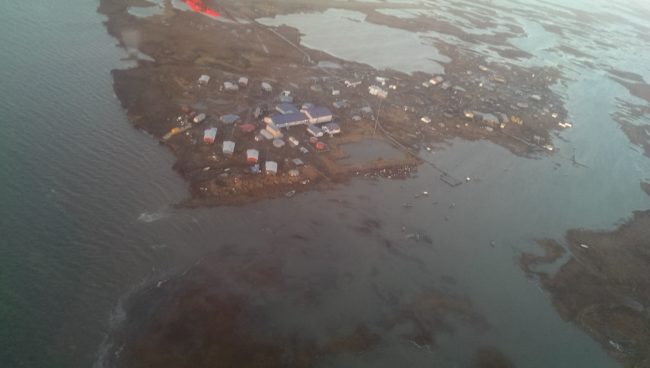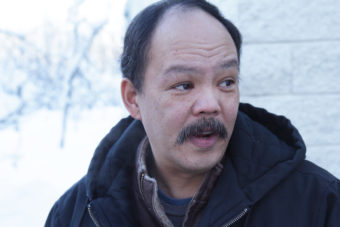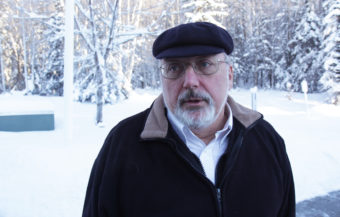
President Barack Obama has turned down a request from the western Alaska village of Newtok for a disaster declaration.
Newtok applied for relief based on erosion and thawing permafrost that are expected to destroy the village within three years. It was a test of whether the nation’s disaster laws apply to slow-moving impacts linked to climate change.
On Wednesday, the answer from the White House was: no.

Romy Cadiente, Newtok’s village relocation coordinator, heard the news in a phone call Wednesday morning from Kenneth Murphy, the regional administrator for the Federal Emergency Management Agency, or FEMA.
“We were shocked,” Cadiente said.
After years of trying to scrape together funding, Cadiente said he thought the disaster declaration was Newtok’s best chance to access the tens of millions of dollars needed to move the village out of harm’s way.
A recent engineering report estimates the village is losing an average of 70 feet of land per year to the Ninglick River, and Cadiente said the situation is now dire.
“We’re going to lose homes this year,” he said. “We’re going to lose our water supply this year. It is dangerous for our village. Where do we put these people? Do you ship them off to Bethel, and if so, who pays for all that stuff?”
Erin Ward is a spokesperson for FEMA Region 10, which covers Alaska, Washington, Oregon and Idaho. She said, as a matter of policy, the agency doesn’t offer details on why a president chooses to deny a major disaster request, adding only that Newtok’s request did not fit the requirements of the Stafford Act, the law that governs disaster relief.
“Based on a review of all the information available, a major disaster declaration under the Stafford Act is not appropriate to address the situation,” she said.
Newtok’s request was unusual. It identified damage that has taken place over multiple years, as well as damage expected in the coming three years. Disaster declarations are usually issued in response to a single specific event.

Mike Walleri is the village attorney. He said the existing system fails communities like Newtok.
“What this means as a practical matter is the village is going to have to wait until these homes are destroyed, rather than taking any preemptive disaster response,” Walleri said.
That approach is inefficient, expensive and unsafe, he said.
Cadiente said the decision was particularly disappointing given that Obama visited Alaska in 2015 to draw attention to climate change, and the president even mentioned climate refugees during his farewell address earlier this month.
“Without bolder action, our children won’t have time to debate the existence of climate change,” Obama told a cheering crowd in Chicago. “They’ll be busy dealing with its effects: more environmental disasters, more economic disruptions, waves of climate refugees seeking sanctuary.”
That’s Newtok, Cadiente said.
“And when the storms get more severe, the flooding, the erosion, the permafrost degradation, what happens to us?” he asked. “What do we do now?”
In the near term, Newtok plans to appeal the decision. The village has 30 days to submit an updated request to the incoming Trump administration.
Longterm, Cadiente said, the village will continue working with state and federal agencies to try to move the village piece by piece.
“We’re never going to give up on this,” he said.
